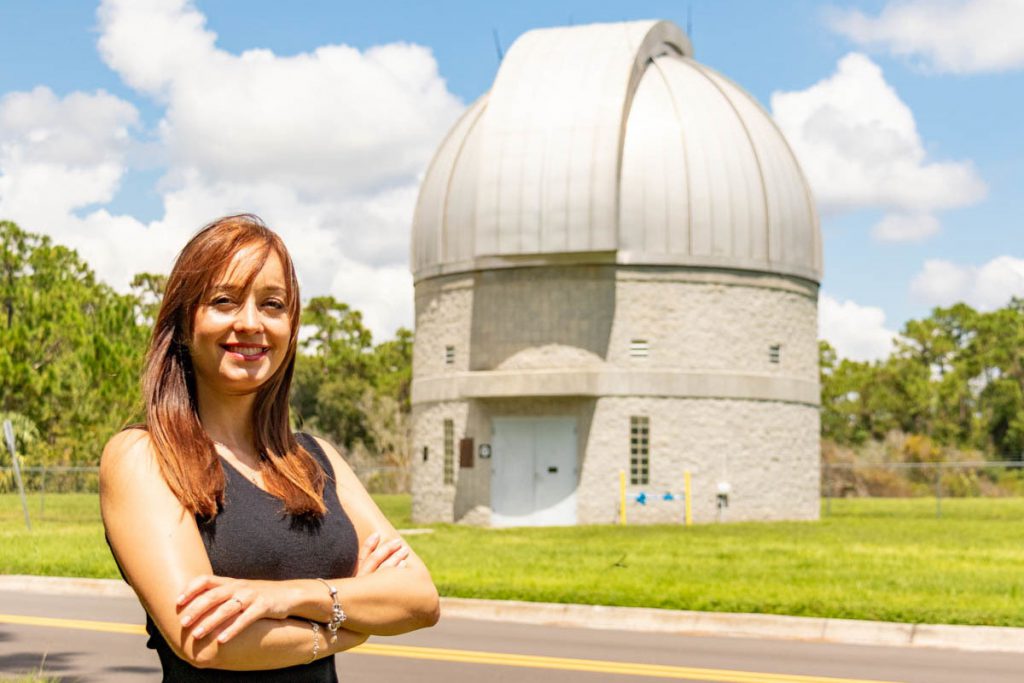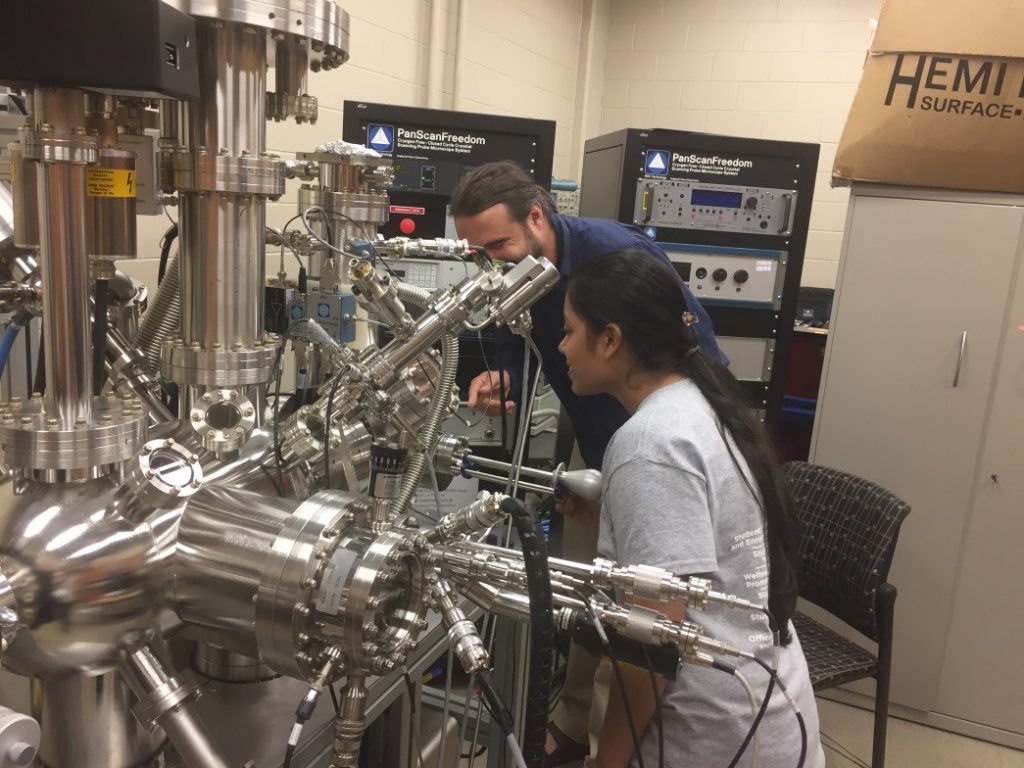Scheduled for launch in 2021, the telescope is anticipated to be as important to scientific discovery as the Hubble Telescope has been in the past decade.
BY ZENAIDA GONZALEZ KOTALA | OCTOBER 10, 2019

The University of Central Florida soon will become a resource for researchers in Florida, Puerto Rico and Latin America seeking an opportunity to use the new James Webb Space Telescope to be launched by NASA.
The telescope, scheduled to launch in 2021, is one of the most sophisticated observatories ever built for space exploration. It is expected to produce images more impressive than the currently used Hubble Space Telescope, thanks to its sensitivity. Because of its potential, it is expected to draw thousands of proposals from scientists around the world to access time on the telescope.
That’s where UCF comes in. The Space Telescope Science Institute decided to offer a JWST master class to select scientists from around the world attend a week-long workshop at the Space Telescope Science Institute in Baltimore to learn how to submit a proposal that will have a high probability of getting selected for access to the telescope.
The institute held a competitive process and selected only 28 participants based on their proposals, which outlined why they should be selected and how they would disperse the information gleaned at the November 2019 workshop.
Estela Fernández-Valenzuela, a postdoctoral researcher working with FSI scientist Noemi Pinilla-Alonso, led the university’s proposal team with physics graduate student Ryan Challener. Fourteen scientists from UCF’s physics department, Florida Space Institute and the Arecibo Observatory in Puerto Rico are part of the proposal. Once Fernández-Valenzuela completes the workshop, she will work with her colleagues at UCF and at the National Science Foundation-owned Arecibo Observatory to set up a workshop in each location early next year.
Fernández-Valenzuela reached out to researchers at universities across Florida, Puerto Rico and beyond when preparing the proposal. Based on those conversations, there were about 90 scientists who indicated interest in participating at the Orlando workshop and 20 at Arecibo, which UCF manages under an agreement with the NSF.
Some of the other awardees are from Stanford University, University of Michigan, University of Hawaii Manoa, Institute for Astronomy, Johns Hopkins University, UCLA, Universidad de Antofagasta (Chile), Instituto de Astronomía at the Universidad Nacional Autónoma de Mexico and the Valongo Observatory, Federal University of Rio de Janeiro in Brazil.
“We are in good company,” says Ray Lugo, director of the Florida Space Institute. “We are the partnership university and this opportunity means we will be working with others to become a resource for scientists conducting observations of space that advance our understanding of space and the origins of the solar system. And the fact that some of our early career scientists are leading this shows the kind of unique opportunity we give our students. It’s a great place to be.”
Noemi Pinella Alonso said the Webb telescope offers a unique opportunity.
“The real advantage of JWST is not the quality of the images, but its sensitivity that is a product of two main factors,” she said. “First, its primary mirror is way larger than the one on Hubble. And second it will observe the universe in the near infrared red and not in the optical wavelengths. This will enable us to look further in the universe, which means watching older objects.”
Pinella Alonso is also thrilled that it is her post-doctoral student, supported through UCF’s P3 program, was selected for the opportunity.
Fernández-Valenzuela said she’s thrilled to continue her research and help others get ready to take advantage of the first call for proposal on the Webb telescope.
Webb will serve thousands of astronomers worldwide. They will study every phase in the history of the universe, ranging from the first luminous glows after the Big Bang, to the formation of solar systems capable of supporting life on planets like Earth, to the evolution of our own solar system.
“I came to UCF from the Instituto de Astrofísica de Andalucía [in Spain] looking for new opportunities to develop the research I am devoted to, and to open new collaborations with experienced researchers in my field in order to learn from them,” Fernández-Valenzuela said. “I have been working quite hard during the last years, and being selected is a sign that this work is paying off.”


